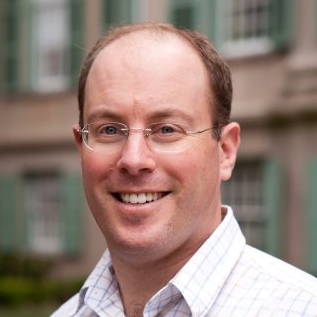
Featured Item

Tracing the history of Jewish activism for social justice
MOIRA SCHNEIDER
“There is no long history and tradition of practical Jewish involvement on behalf of the poorest, weakest and most vulnerable members of society.” So said Professor Adam Mendelsohn, associate professor of historical studies and director of the Kaplan Centre for Jewish Studies at the University of Cape Town (UCT). He was speaking at a Mandela Day event coordinated by Mensch, a group of people working to create social change for all.
“Jews have a much longer tradition of not seeking alliances with fellow weak members of society. Instead, they seek the support of the most powerful to protect them in medieval and modern society.
“Activists in the 20th century have created a new Jewish value of social activism, a new tradition of working on behalf of others,” he added, asking: “Does this diminish their activism?
“I’d argue exactly the opposite – it is all the more wondrous and exciting a creation, and all the more creditworthy and inspiring for being new. It’s an opportunity for Judaism to reinvent itself to value activism as well.
“These Jewish values are modern values that work in a modern world where notions of equality are important. Jews have an interest in creating an ideal society where there is tolerance for other groups; hopefully, there’ll be tolerance for them too. This explains Jewish politics today – advancing our own interests as a group by advancing an ideal society.”
Mendelsohn examined whether Jewish values had played a central role in Jews’ activism by analysing three groups who had been prominent in two of the greatest freedom struggles of the second half of the 20th century: the anti-apartheid movement in South Africa and the civil rights movement in the United States. The motivation of these three groups ranged from giving explicit credit to Jewish values to the exact opposite – those who consciously rejected particularism.
As in the US, in South Africa, Jews had played a prominent and disproportionate role in advancing the struggle for human rights. Thirteen of the defendants in the Treason Trial were Jewish, as were five in the Rivonia Trial.
“They were also disproportionately involved in the legal defence of anti-apartheid activists,” Mendelsohn said. Similarly, half of the civil rights attorneys representing activists in the US South during the 1960s were Jews.
Regarding the first category of activists, those who specifically credited Jewish texts and traditions for their activism constituted a small group – in the US, they were mostly rabbis of the Reform and Conservative movements. “The prophets’ statements are injunctions to us to act” and “We cannot sit by when there is injustice in the world,” they said.
In South Africa, Reform rabbis Andre Ungar and Ady Assabi, as well as Orthodox rabbis David Rosen and Cyril Harris, used the same argument.
The second category of activists were professionals associated with Jewish organisations in the US, such as the Anti-Defamation League, the American Jewish Committee and B’nai Brith. They credited the lessons of recent Jewish history, particularly the moral lessons of the Holocaust, saying: “The Holocaust demands that Jews not be bystanders.”
“Why would Jewish groups become so involved in advancing the rights of another group?” asked Mendelsohn. “By tackling racism against African Americans, you are killing two birds with one stone, as the same people are likely to be anti-Semitic,” he said, suggesting Jewish self-interest as a motivating factor in supporting black civil rights.
“Many were altruistic, but beyond that there’s an advantage to Jewish rights by pushing for the advancement of African American rights,” he posited.
The third group of activists, the broadest and largest category, were Jewish activists in both movements who were unwilling to credit Jewish values for their activism. “Many were the children of immigrants who had been exposed to the radical strains of eastern European politics,” explained Mendelsohn.
“Many were familiar with marginalisation. Many had been shaped by World War II’s urgent moral lessons too, with the new call for utopianism and defending the rule of law.
“Jewish lawyers in South Africa defending anti-apartheid activists almost never talk about Jewish values as their inspiration,” he added, mentioning the same phenomenon in the US in the 1950s and ’60s. “It was particularly true of those on the radical left, who consciously reject any talk of particularism. Talk of Jewishness was anathema to them.
“Instead, the emphasis is on universalism and a broader solidarity with working men and women.”
So, which of the three groups best reflects a long history and tradition of work by Jews for social justice? “None of them because that tradition doesn’t exist,” Mendelsohn concluded.





George Robinson
July 25, 2018 at 2:59 am
‘My Jewish friends did play an amazing role in the SA struggle and were particularly prominent as lawyers and advocates for the oppressed and the activists.
BUT please never forget that Apartheid’s Lawyer was none other than an Orthodox practicing Jewish man by name of Percy Yutar.’